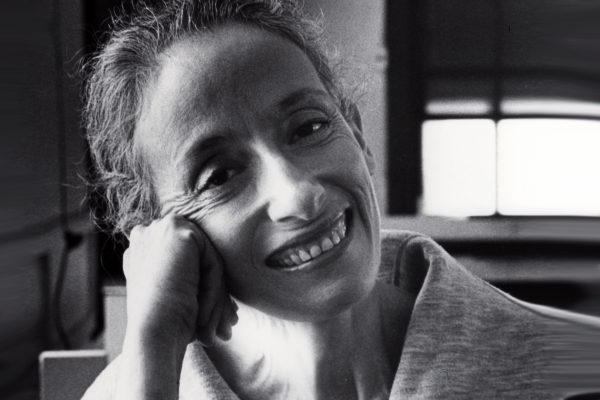Dance’s increasingly precarious ecology is creating a scary time for young choreographers, especially those with great expectations. Instead of doors opening, things are shutting down and there’s less confidence in the future. Trying to get your first gig may be where you begin, but without a game plan and opportunities it’s hard to imagine where new voices will wind up.
Amy Blackmore, who studied in the contemporary dance department at Concordia University in Montréal, is an articulate representative of a generation of dance artists seeking alternatives. She is also the enlightened artistic director of Montréal’s Bouge d’ici dance festival, which recently wrapped up a banner fifth year with a successful formula of shows, workshops, a mini dance-film festival and — perhaps most importantly — full houses. This year’s event included the opening show, Le Projet Migration, a seamless comic tale of love and immigration featuring Christine Germain and Slater Penney, the Common Space main event featuring an array of choreographic works, but also an evening of storytelling called Confabulation and an informal short-format showcase of ideas called So You Think That Was Dance?
In a city where festivals are growing at a significant rate, the event manages to promote an eclectic new wave of talent in the crowded Montréal dance scene and stimulate prospects for young artists entering the cultural field. “No one wanted to present my work as a student,” Blackmore says bluntly. “There were no realistic opportunities.” But she remembers the late Ken Roy, one of her technique teachers at Concordia, letting her complain about the pressure cooker, but ultimately prompting her, saying, “Do it yourself.” And the Concordia degree program taught students “to be curious and to want.”
Not satisfied with being cast aside and discouraged by major festivals offering the view that dancers are not professional artists if they’re not “earning a living off of dance,” (a remark directed at Blackmore and her peers by several major festival organizers), a fledgling group banded together. In 2008, Blackmore, along with eight entrepreneurial fellow choreography majors in the Concordia dance department, put on a show called Common Space, each performing in the other’s work. The event sold out, and friends came knocking, asking to be in future shows.
Blackmore admits there is the fear factor in moving beyond the comfortable bubble of school and friends. While Bouge d’ici started out as a local indie mini-festival, and was very Concordia-centric, today’s roster represents talent from Université de Québec à Montréal, the École de danse contemporaine de Montréal, and beyond. “I wouldn’t say I choose people based on where they are going to go,” says Blackmore, “it’s more about where they are now.”
There is no formula for getting noticed in dance, but Blackmore’s generation seems to be taking charge, striving against the odds in a world where a hit one season can lead to a couple years of no work. A low-pressure event like Bouge d’ici, with its DIY philosophy, and where artists receive feedback from mentors who are most often peers in the community, works. “It’s not so much ‘we don’t need you’ [i.e., the established festivals], but more that we’re banging on the basement ceiling,” Blackmore says. She is nothing if not pragmatic about the future. “Some people will fall off, and that’s OK.”
Blackmore understands the pressure to be solvent and bring in new audiences, but she still wants the freedom to experiment and exchange. After these first pioneering years, and with a stronger infrastructure in place, she will be submitting applications to the granting agencies for the first time this season, but understands there are no guarantees. Although she doesn’t presume to understand all the solutions, Blackmore knows that leadership and temperament go a long way in changing set realities. And she’s in it for the long haul.
Tagged: 360 Dance, Contemporary, Festival, Montréal , QC




